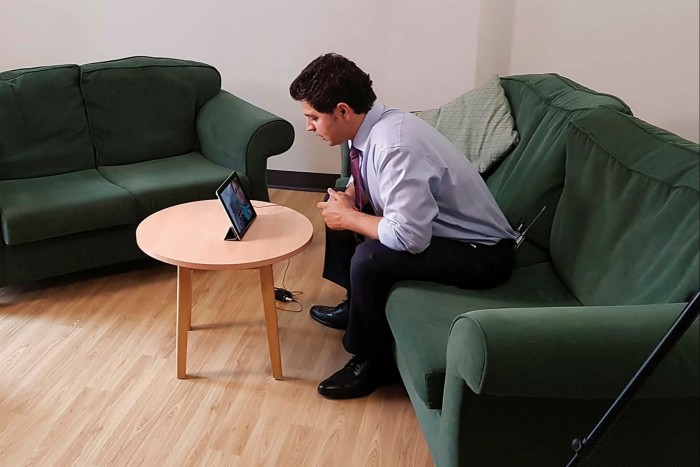Afghanistan telemedicine provides much-needed link to global help

Roula Khalaf, Editor of the FT, selects her favourite stories in this weekly newsletter.
When the Taliban regained control of Afghanistan last year, the ensuing humanitarian crisis sparked fears both for the millions fleeing the country and for the health and safety of those who remained.
The UN estimates 3.5m people have been displaced as a result, while the World Health Organization has warned that Afghanistan’s healthcare system — which is beset by shortages of medical supplies and a lack of facilities — is on “the brink of collapse”.
But, while some healthcare groups have exited the country, one innovative health tech group is continuing to operate its telemedicine services there despite the deteriorating security and economic outlook. Founded by Waheed Arian, a former child refugee from the Soviet-Afghan conflict and now a doctor in the NHS, telemedicine charity Arian Teleheal provides local doctors with real-time video access to volunteer medical specialists around the world. It aims for a four-hour turnround on detailed emergency investigations and advice.
The service enables doctors, sometimes working in remote regions, to obtain advice via video-chat and instant-messaging tools from a 150-strong pool of volunteer clinicians located in different countries. The system uses everyday technology, such as secure, encrypted social media channels on smartphones.
Piloted in Afghanistan in 2015, Arian Teleheal says it facilitated care for more than 1,000 people between 2016 and 2018, resulting in almost 700 lives being saved. The UK-registered charity receives no government funding and is reliant on public donations.
Telemedicine — remote diagnosis and treatment via technologies such as video — is a valuable communication tool for doctors on the ground to obtain advice. “Virtual care is even more important [after Afghanistan’s regime change],” says Waheed. “It does not replace in-person support, it supplements it, especially in difficult times.” He highlights the challenges caused by the civil war and the Covid-19 pandemic, such as intermittent internet coverage.
Waheed hopes the programme can improve health outcomes and promote peace in the war-torn country. “We are all in this not just to solve a singular case. We are all here to reach out to people who are neglected,” he says.

Treatment of mental health problems is also possible via Arian Teleheal’s telelinks, Waheed says, as it “is an area that doesn’t necessarily need a [physical] examination”.
Afghanistan has a history of employing the technology: the Roshan telemedicine project was set up in 2007, using the M-Paisa mobile payment system. The Roshan programme came to prominence in 2015 when it provided a virtual link with doctors in Pakistan that led to Afghanistan’s first successful operation to separate conjoined twins. The telemedicine technology enabled the twins, Ayesha and Seddiqa, to be treated in Kabul and spared their parents the expense and inconvenience of having to travel far for subsequent check-ups.
Palwasha Anwari, an Afghan-born doctor who left the country in November to study at the London School of Hygiene & Tropical Medicine, says telemedicine is a useful tool in a country with poor infrastructure and a deteriorating health system. “[Telemedicine] can be a quick win, particularly for diagnostic services and also management of cases”, she says, adding that it can offer “help to the experts who are there, particularly [in] trauma or some other surgical cases”.
Anwari, who is also a nutrition officer for Afghanistan with the UN Children’s Fund, says the country’s health system has been strained by the war, with many health workers going unpaid for months. “Primary healthcare, such as child health, immunisations, antenatal care, postnatal care or other essential or basic health services, have all been affected,” she says.
Yet telemedicine can only “fill some gaps”, says Anwari, noting that both internet access and electricity are subject to outages in Afghanistan. More urgent medical cases “require professional basic health services, while telemedicine can be useful for the treatment of trauma cases and mental health”, she adds.
Waheed says the revival of Afghanistan’s healthcare system depends on the collaboration of virtual and in-person medical programmes, given the security and infrastructural challenges facing the country. It may be some years before things return to normal, he adds.
“Until then, it is a virtual system that we can fully utilise, and then supplement, with in-person support where needed,” he says.

Comments